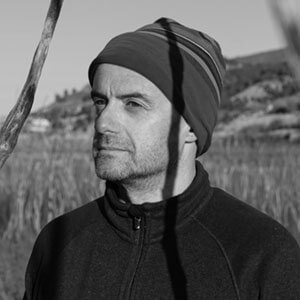Matteo Fagotto
Matteo Fagotto is an award-winning Italian author, journalist, and podcast host based in Barcelona. With over a decade of experience reporting from over thirty countries, his work has appeared in TIME, Newsweek, Foreign Policy, and Audible. Fagotto’s reporting has focused on conflict, illegal exploitation of natural resources, and human rights abuses. Since 2016, his storytelling has explored the relationship between humanity and nature, focusing on Indigenous communities and their struggle to adapt to the accelerating impacts of climate change.
Fagotto began his journalism career in 2009 as chief editor of the Africa Desk at Peace Reporter in Milan. He then pursued freelance reporting, living and working in South Africa, Lebanon, and Spain. His work has been featured in television documentaries and radio broadcasts on Channel 4, BBC Radio, and Sky TV, covering conflict zones such as Somalia, Sudan, and the Central African Republic. In 2011, he received the Novinarska Cena first prize for his coverage of the Libyan civil war.
His storytelling is distinguished by its depth, clarity, and human-centred focus. Since 2016, Fagotto has increasingly dedicated his work to environmental themes and Indigenous resilience in the face of climate change. In 2022, his first podcast, The Lost, premiered on Audible after two years of investigation into the lives of Spain’s stolen children. The series traced their search for identity and family, earning acclaim for its depth and emotional resonance.
Fagotto is co-founder of Tandem Reportages, a storytelling agency that delivers high-quality visual and narrative journalism on underreported global topics. He holds a Master’s degree in History from La Sapienza University in Rome and speaks English, French, Spanish, and Italian.
Beyond his reporting, Fagotto has advocated for the value of long-form, immersive journalism. His collaborations often involve close partnerships with photographers and filmmakers, and his ability to shape compelling narratives has made him a valued contributor to multimedia projects and global storytelling platforms. Through Tandem Reportages, he ensures that complex issues receive the attention they deserve, combining rigorous research with accessible storytelling techniques.
His fieldwork and editorial direction reflect his commitment to shining a light on underrepresented communities and overlooked global dynamics. Whether documenting the effects of climate breakdown or unpacking political injustices, Fagotto brings a clear ethical perspective and strong narrative craft to his work. He continues to collaborate internationally, maintaining a deep belief in journalism’s capacity to raise awareness, drive change, and preserve collective memory through thoughtful documentation.
Premiering in October 2022, The Lost is Fagotto’s debut as a podcast creator, produced as an Audible Original. The investigative series explores the long-hidden story of Spain’s stolen children – a historical scandal in which tens of thousands of newborns were taken from their mothers and illegally adopted during and after Franco’s dictatorship. Conducted over two years, the podcast traces the personal stories of those searching for their biological families, confronting institutional silence and generational trauma. With its emotional depth and investigative precision, The Lost received critical acclaim for restoring visibility to one of Spain’s most painful social wounds.
Filming in Mogadishu – the world’s most dangerous city, Channel 4
Fagotto’s work in Somalia led to a powerful documentary for Channel 4, filmed in Mogadishu, one of the most dangerous cities in the world. The production offered rare and harrowing insights into the lives of civilians navigating daily violence, political instability, and the threat of terrorism. Filmed under extremely challenging conditions, the documentary highlighted the Somali people’s resilience and the ethical complexities of reporting from active conflict zones. It stands as a testament to Fagotto’s commitment to bearing witness in the world’s most perilous environments.

